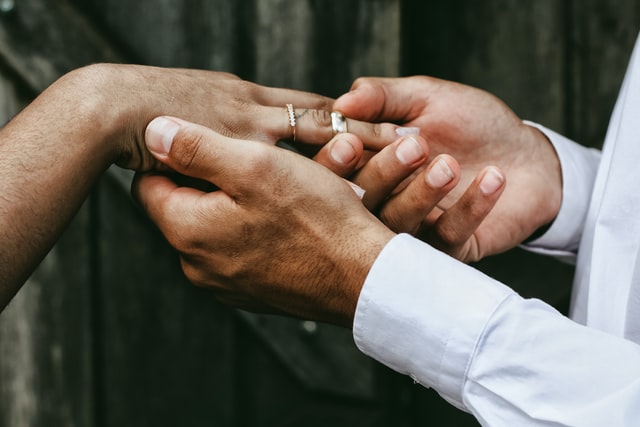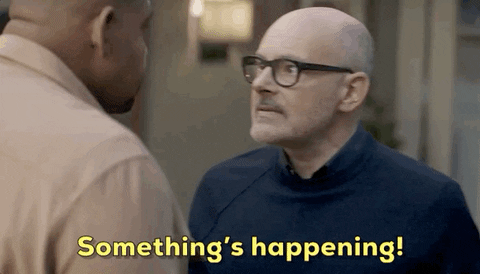August 23, 2021
either/view ⚖️
Religious freedom
To: either/view subscribers
Good morning. Are you unhappy with the photo on your Aadhar card? Worry not, you can now change your Aadhar photo.
It’s been many years since we received our Aadhar cards. So the Aadhar issuing body opened facilities for us to update our current photos. All you have to do is download the Aadhaar Enrolment Form from the official UIDAI website, fill it up and submit it at the nearest Aadhar Enrollment Centre. Pay ₹25 + GST and get your image captured right there. The executive will issue a request number, then you can log online to the website and get your updated Aadhar card. What are you waiting for? Go grab your new copy of the card!

📰 FEATURE STORY
Decoding the Gujarat Freedom of Religion (Amendment) Act, 2021

India is a country where different religions coexist. The constitution ensures that we all are free to follow or practice any religion. This way, if you want to convert to another religion, you have the right to do so.
But several times people are forced or lured to convert their religion. To put an end to this, the Gujarat government passed the Gujarat Freedom of Religion (Amendment) Bill, 2021. However, the Gujarat High Court recently stayed a few sections of the amendment. It observed that some of the sections in the new law affect interfaith marriages.
Context
The Gujarat Freedom of Religion Act was initially passed in 2003 and has been amended many times after that. The 2003 Act ensures freedom of religion by prohibiting unlawful and forceful conversion from one religion to another on certain grounds. That is, the conversion of religion by the use of force or allurement or by fraudulent means is prohibited. It lays down certain rules and punishments for the same.
The recent amendment in the Act came into force this June. This Act is also known as the ‘Gujarat Anti-Love Jihad’ Act. It made several changes to the existing law. As per this, strict punishment will be given for forcible religious conversion through marriage.
To understand it better, we will check Section 3 of both Acts. As we already discussed, the original Act prohibits conversion of religion by force, fraudulent means or allurement. The 2021 amendment changed it to prohibiting conversion of religion ‘by use of force or by allurement or by any fraudulent means or by marriage or by getting a person married or by aiding a person to get married nor shall any person abet such conversion’.
A few cases have been registered under this Act and arrests have also been made subsequently. So why are we talking about the law now? Because this Act has been challenged by petitioners in the court. It is claimed that the Act is unlawful discrimination and causes more trouble for interfaith marriages.
Act will stop forced religious conversions through marriage
Before we get to the heart of the petition and hearing, let’s take a look at the need for the amendment and its provisions.
During the bill discussion, the government had stated that there is an “emerging trend in which women are lured to marriage for the purpose of religious conversion”. This was a basic reason for the amendment. States like Uttar Pradesh and Madhya Pradesh already have ordinances against unlawful conversions. Plus, the Haryana government has formed a committee to frame a law against the same.
According to Section 4A of the law, the punishment period is from 3 to 10 years along with a fine of up to ₹5 lakh. Before the amendment, the punishment period was a maximum of three years with a fine of only ₹50,000. The punishment is now made harder to reduce unlawful conversions. Section 4B of the Act allows family courts to declare any marriage that has taken place for the purpose of unlawful conversion void. Additionally, Section 4C deals with offences of unlawful conversion committed by organisations and institutions. Such rigid laws have been framed to stop forced conversions and will be of aid to many women and children.
So, this Act serves as a rescuer to those people who are forced or lured to convert religions and makes way for them to exercise their right to practice any religion of their choice.
The petition filed in the court raised an important concern. The words used in the framing of the law hints at the ban of interfaith marriages. However, Advocate General Kamal Trivedi who represented the state government clarified that the law does not prohibit interfaith marriage. It ensures that interfaith marriage could not be “used as a tool or instrument for effecting forceful conversion”.
Finally, the state explained that the entire law only focused on curbing unlawful conversion. The issue simply does not revolve around genuine interfaith marriages. There will be sufficient safety valves that would stop people from misusing this law. Therefore, there is no need to worry as long as the conversion is not unlawful.
Act affects interfaith marriages adversely
Recently, two petitions were filed against the law in the Gujarat High Court. It emphasised that this law was against fundamental rights. It was invading one’s personal autonomy, free choice and freedom of religion. Because of the above-mentioned reasons, it was said that the law was violative of the rights under Articles 14, 21 and 25 of the Constitution.
But how?
The fear is that if two people from different religions marry each other and one of them converts to another religion based on mutual consent, will this still be wrong under the Act? If so, then the law violates our fundamental rights to practise any religion of our choice. It also affects our right to life and personal liberty.
A two-judge bench heard the petition. The court observed that marriage and religion are an individual’s personal choices. During the hearing, the state said that the law was not against genuine interfaith marriages. However, the court mentioned that the language used in the Act is very ambiguous and does not convey the state’s stand on interfaith marriage properly. By not making it clear, the amended Act was leaving a “sword hanging” on interfaith marriages.
The HC further observed that interfaith marriages that took place between two consenting adults without any cheating should not be considered in this case. Such marriages will not fall under the criteria of unlawful conversions. The court also passed an interim order staying Sections 3, 4, 4A, 4B, 4C, 5, 6 and 6A of the Act. It mentioned that this order will protect the ‘interfaith couples’ from unnecessary harassment.
Section 6A of this Act states that the burden of proof lies with the accused. In other words, if a person is arrested under this Act, then the accused should provide evidence to prove that the conversion did not happen through any unlawful Activities. This goes against the Indian Evidence Act of 1872, which states that the responsibility of producing evidence lies with the complainant.
When the Advocate General requested the court to clarify if these sections can be allowed for marriages that result in forced or unlawful conversions, the bench maintained that interfaith marriages and lawful conversion can not be construed as an offence.
So, it all boils down to the point that while the government statements did not differ much from what the court held, the language used in the law tells otherwise. The court’s order has received support and appreciation from opposition parties and citizens.
🕵️ BEYOND ECHO CHAMBERS
For the Right:
Why India’s public health insurance doesn’t work very well – and how it can be fixed
For the Left:
Elites don’t get Trump or Brexit. They are caught in the meritocratic trap
🏴 STATE OF THE STATES
No longer ‘martyrs’ (Kerala) – On March 7, 2019, Prime Minister Narendra Modi released the book ‘Dictionary of Martyrs: India’s Freedom Struggle 1857-1947’. The book contains a list of all martyrs who gave their lives fighting for India’s freedom during the period between the First War of Independence in 1857 to India’s Independence in 1947. The first edition of the book included 387 ‘Moplah martyrs’. These names will be removed from the book, as a three-member panel found that the ‘Moplah martyrs’ were just rioters who focused on religious conversion instead of fighting for India’s freedom.
Paying respects or insulting flag? (Uttar Pradesh) – Former UP Chief Minister Kalyan Singh died on Saturday at the age of 89. As he was considered to be a stalwart BJP veteran, many party leaders including PM Narendra Modi visited Lucknow to pay their respects. However, a controversy erupted after images on social media showed Kalyan Singh’s body draped by the BJP party flag, covering half of the Indian national flag which was placed under it. People noted that this was an insult to the national flag and questioned the state and union governments on the same.
Discontent murmurs dismissed (Maharashtra) – Union Minister and BJP leader Narayan Rane claimed on Saturday that the state’s Urban Development Minister and Shiv Sena leader Eknath Shinde was unable to take any decision without interference from Chief Minister Uddhav Thackeray. But Shinde dismissed the claims on Sunday, stating that Rane was trying to create confusion within the Maha Vikas Aghadi alliance. Well, there definitely seems to be something brewing here.

Another state? (West Bengal) – Has North Bengal been neglected by the ruling government in the state? Yes, feels BJP state chief Dilip Ghosh. He also supported his party MP John Barla’s demand for the bifurcation of West Bengal. He claimed that the MP was only batting for the people in North Bengal who were deprived of development in their region. John Barla’s demand and the subsequent support by Dilip Ghosh have been criticized by many parties in the state, including the ruling Trinamool Congress.
Cancer capital (Northeast India) – According to a report released by the Indian Council of Medical Research (ICMR) and National Centre for Disease Informatics and Research (NCDIR), states in Northeast India have the highest cancer incidence rates in the country. Arunachal Pradesh’s Papum Pare district has 219.8 per one lakh cancer cases among females, while Mizoram’s Aizawl has 269.4 per one lakh cases among males. The researchers hoped that the government will take necessary actions regarding cancer prevention based on the data published in the report.
🔢 KEY NUMBER
54 – Number of Indians who will participate in the Tokyo Paralympics, scheduled to begin on August 24. This is the largest Indian contingent ever, and has raised hopes for a stupendous performance this time around. Let’s cheer them on!

